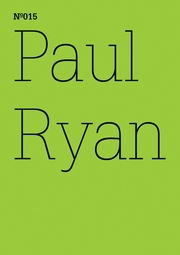| |||||||||||||||||||||||||
ARTBOOK BLOGEventsStore NewsMuseum Stores of the MonthNew Title ReleasesStaff PicksImage GalleryBooks in the MediaExcerpts & EssaysArtbook InterviewsEx LibrisAt First SightThe Artbook | D.A.P. 2025 Gift GuidesArtbook Featured Image ArchiveArtbook D.A.P. Events ArchiveDATE 12/11/2025 192 Books presents Raymond Foye and Peter Gizzi on The Song Cave's new edition of John Wiener’s 'Behind the State Capitol: Or Cincinnati Pike'DATE 12/8/2025 Pure winter glamour in ‘It’s Snowing!’DATE 12/3/2025 Flamboyant poses and melodramatic airs in 'Cecil Beaton's Fashionable World'DATE 11/30/2025 Artbook at Hauser & Wirth Los Angeles Bookstore presents Kelli Anderson and Claire L. Evans launching 'Alphabet in Motion'DATE 11/27/2025 Indigenous presence in 'Wendy Red Star: Her Dreams Are True'DATE 11/24/2025 Holiday Gift Guide 2025: Artful Crowd-PleasersDATE 11/22/2025 From 'Bottle Rocket' to 'The Phoenician Scheme' — the archives of Wes AndersonDATE 11/20/2025 The testimonial art of Reverend Joyce McDonaldDATE 11/18/2025 A profound document of art, love and friendship in ‘Paul Thek and Peter Hujar: Stay away from nothing’DATE 11/17/2025 The Strand presents Kelli Anderson + Giorgia Lupi launching 'Alphabet in Motion'DATE 11/15/2025 Holiday Gift Guide 2025: Stuff that StockingDATE 11/15/2025 Artbook at MoMA PS1 presents Cory Arcangel, Eivind Røssaak and Alexander R. Galloway launching 'The Cory Arcangel Hack'DATE 11/14/2025 Columbia GSAPP presents 'The Library is Open 23: Archigram Facsimile' with Beatriz Colomina Thomas Evans, Amelyn Ng, David Grahame Shane, Bernard Tschumi & Bart-Jan Polman | DOCUMENTA NOTEBOOKS: PAUL RYANTHOMAS EVANS | DATE 7/29/2011Documenta Notebooks: Paul Ryan, Excerpts from an InterviewIn his contribution to the Documenta Notebook series, New York video artist Paul Ryan talks to Ayreen Anastas and Rene Gabri. In the following excerpt, Ryan recalls his years as teaching assistant to Marshall McLuhan at Fordham University. (The numerals used to denote the speakers are intended by the interviewers to "allow an opening, a depersonalization and a movement to happen between the three of us." [3] is Ryan.)[3] McLuhan was brilliant and he had a lot of guts. I had an office two doors down from him, so I got the chance to familiarize myself with his way of operating. Amazing man. Always reading an eclectic selection of books, always probing: “The sense ratio of a Russian peasant is like tar.” “The New York Daily News has two front pages. One of them is on the back.” “War is education. Education is war.” It got to a point where I said to myself: “This man is either full of it or what he has got to say is really worthwhile. I will never know unless I test it out for myself.” So, I got hold of some video equipment and started experimenting. If the medium is the message, what are we to make of the medium of portable video? My first concern was to distinguish video from television, so in 1968 I coined the aphorism “VT is not TV,” and went on from there.[1] Would you agree with commentators who say McLuhan was naïve?[3] When McLuhan came to New York one of the things he wanted to do was invite members of the Mafia to a public forum about how they did business without paper. How they kept their word without paper. His two friends John Culkin and Ted Carpenter persuaded Marshall it was not a good idea. I’d say yes, in ways Marshall was naïve, but that naïveté made possible the unique insights of a well-educated, fearless innocent with first-rate rhetorical skills. Maybe a McLuhan-Mafia dialogue would have significantly illuminated the oral/literate/electric schema. [1] In your encounter with McLuhan, what were the doubts that led you to say, “I will have to test it out for myself”? [3] I couldn’t get the politics; the politics were not clear. I’d say to McLuhan, “So, what do we do?” He’d say, “Well, it is too early to tell.” When you’re a young guy with the Vietnam War burning on your butt, that’s not the kind of thing that you want to hear. You want to get something done. McLuhan was an academic; he could say, “Wait, wait, we don’t understand.” He was not offering any strategy other than the traditional artistic one; you contribute to the perception of problems and move on. For me, that wasn’t good enough. I was looking for both social change and aesthetic concern. |
